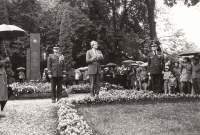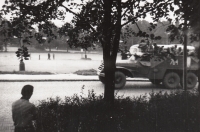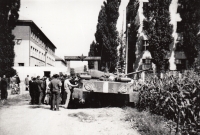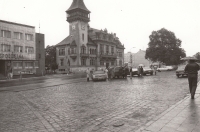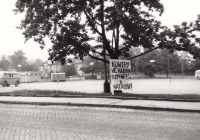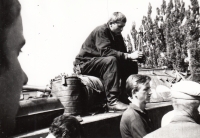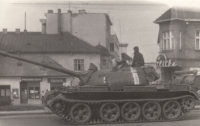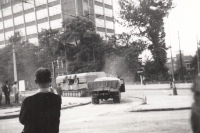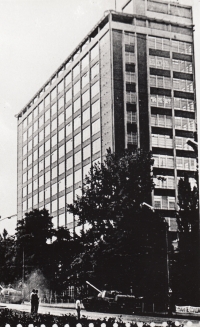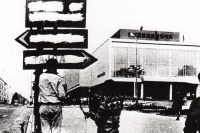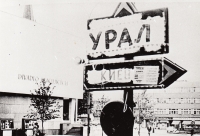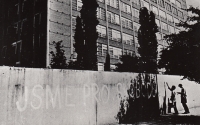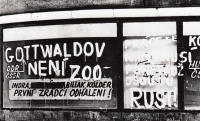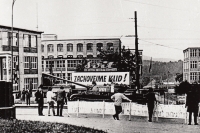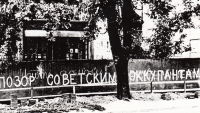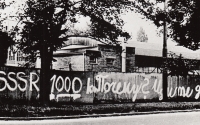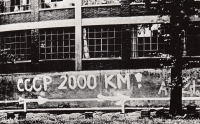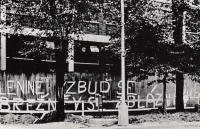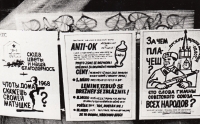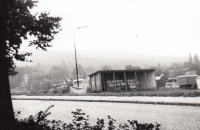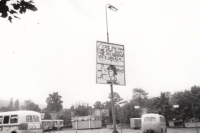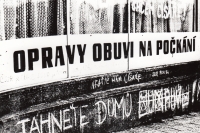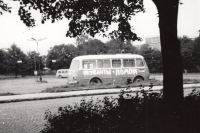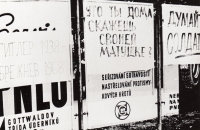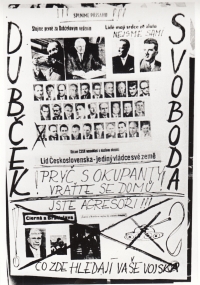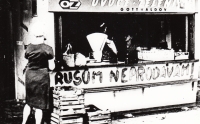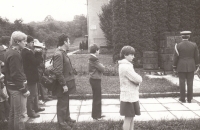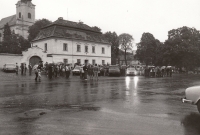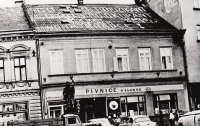As long as the last communist walks the earth, there will be no peace
Download image
Karel Fišer was born on 31 July 1947 in Zlín. When he wanted to apply to the art school after primary school, the regime did not allow him to do so. Instead, he only did an apprenticeship and later supplemented his education - during the time he worked in gottwaldovský Svit, he graduated from the mechanical engineering school. Already at primary school he met the future dissident Bohumil ‘Bob’ Obdržálek, with whom he later collaborated in samizdat. Karel Fišer photographed Soviet soldiers and their equipment during the occupation in August 1968. He could have lost his life in the process. When he met another dissident, Jaromír Němec, in the first half of the 1970s, he and Obdržálek started a samizdat collaboration. The printing and distribution of illegal publications had deep roots in Gottwaldov. Stanislav Devátý, Pavel Dudr, Bedřich Koutný and Petr Konvalinka were involved in it. In 1969, Karel Fišer took part in protests against the occupation in Bratislava. Soon afterwards, his passport was revoked. He fought for its return for fifteen years. Karel Fišer tried unsuccessfully to emigrate several times and at the same time experienced several difficult interrogations in Czechoslovakia directed by State Security. At the time of the interview he was living in Zlín.
